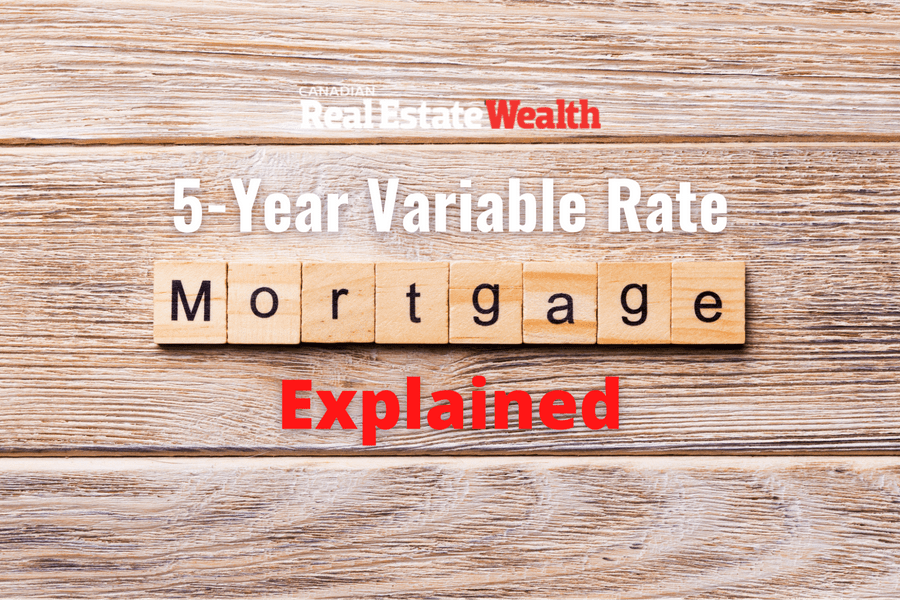Last Updated on October 24, 2023 by Corben Grant
In a recent article, we looked at how the affects other banks’ prime rates and what it means for borrowers. The bank’s interest rate impacts a lot of what happens in the Canadian financial system, but it isn’t the only important variable that investors should know about.
Another common figure that plays a role in the market is what is known as bond yields. The role that these play in mortgages and other borrowing is similar to the overnight rate. When bond yields change, the banks take the change into account which then gets passed on to the borrower. Bond yields are crucial in understanding how fixed-rate mortgage rates are set.
What are government bonds?
A bond is a kind of investment product that is most popular for its low risk and reliable returns. When you buy a bond yield, you are, in essence, acting as a lender to the Bank of Canada. The bank will take your money and put it towards government spending and debts and will issue you interest over time. Once your bond reaches maturity, you are paid back the principal amount in full.
Government bonds are thought to be extremely low risk, some even say zero-risk. This is because the bonds are guaranteed by the government themselves, making them some of the most secure investments around. In theory, the government could fall apart and fail to honour your bond, but if that happens, you probably have a lot more to worry about.
There are a variety of bonds offered, each with different times to maturity. Generally, the longer the maturity period, the higher the yield, but the longer you will need to wait to see your principal repaid. Bank of Canada bonds can be as short as one year and as high as 30 years.

The downside is that in investing, the higher the risk, the higher the potential returns. Bonds, with their remarkably low risk, don’t pay as much interest compared to many other investment avenues. This makes them a good option for those looking for somewhere to hold money they can’t risk losing, but not great for those hoping to see it grow quickly.
Bonds are primarily issued to banks who then sell them as investment products to clients. Bonds can be held to collect on their interest or bought and sold at any time to other investors. When a bond is sold on the market, it may be sold for more or less than its initial face value.
What are bond yields?
The yield of a bond is a way of measuring the annual return on a bond investment. A bond’s yield is expressed as a percentage.This is not strictly a measurement of interest paid out. At the time of issuing, each bond comes with a face value and what is called a coupon rate, a fixed interest amount that is paid. Then when bonds are bought and sold on the open market, they may sell for above or below the face value. There are a few ways to calculate bond yields that take into account the different coupon rates and changing value over time.
However, these calculations can get complicated. For the sake of understanding mortgage rates, it’s important to know that bond prices fluctuate in the market. When bond prices go up, the returns from owning a bond go down. When prices are low, the returns are higher. Mortgage rates follow the bond yields and, therefore, have an inverse relationship to bond prices.
The price of individual bonds depends a lot on the face value, the time they were issued, and the time they are sold. Generally, bond yields are reported as market averages for similar bond types, rather than exact values for any specific bond.
Why do banks use bonds?
For banks, bonds represent a nearly guaranteed minimum amount of return they can collect on their money. This means that any investments they make must ideally be more beneficial than simply holding bonds, otherwise, they take on unnecessary risk for lower or equal returns. This is fundamental in explaining how bond yields affect mortgage rates.
How do they affect mortgage rates?
Bonds and mortgages are similar in that they have relatively fixed time periods, the difference being that a mortgage is much riskier to a lender than buying bonds. For a bank, mortgages allow them to make more money, but they aren’t guaranteed. For a given time period, the bank knows they could get a guaranteed return of a certain percentage based on the bond’s yield, so they charge you a premium above this interest rate for mortgage rates in order to account for risk. As bond yields rise, it would be comparatively less appealing for a bank to invest in mortgages so they raise their rates to correct for the new minimal return they expect.

In general, fixed interest rates react pretty quickly to current yield values. Banks tend to base their interest rates for each mortgage on the corresponding bond yield. For example, for five-year fixed mortgages, one of the most popular mortgage types, the interest rate is tied to the five-year bond yield.
It is important to understand how the bond market affects your interest rate . Though all banks access the same bond market, this doesn’t mean they will all offer the same mortgage rates. Some may choose to charge more or less of a premium above the bond yield. Knowing the yields can help you tell if you are getting a bad deal or not, as well as how rates may change if you choose to wait for your mortgage.
Current bond yields and forecasts
Here are some of the current yields for a select few Bank of Canada bonds, as of the time of writing:
- 1-year bond yield- 2.481%
- 3-year bond yield – 2.736%
- 5-year bond yield – 2.859%
- 30-year bond yield – 2.99%
As you can see, the longer your bond takes to mature, the higher your interest may be.
Looking at the historical data, we are currently seeing a rise in bond yields. Bond yields generally fell through 2018–2019 as interest rates went down and hit an all-time low in 2020. This also shows how bond yields are closely related to interest rate levels. , so do bond yields.
The upwards trend in bond yields will likely continue for the time being. As the Bank of Canada raises interest rates, bond yields should follow. Other economic uncertainty around rising rates and inflation may also push more investors toward buying bonds for their inherent lower risk.
Corben joined CREW as a relative newcomer to the field of real estate and has since immersed himself and learned from the experts about everything there is to know on the topic. As a writer with CREW, Corben produces informative guides that answer the questions you need to know and reports on real estate and investment news developments across Canada. Corben lives in Guelph, Ontario with his partner and their two cats. Outside of work, he loves to cook, play music, and work on all kinds of creative projects. You can contact Corben at corben@crewmedia.ca or find him on Linkedin at https://www.linkedin.com/in/corbengrant/.









